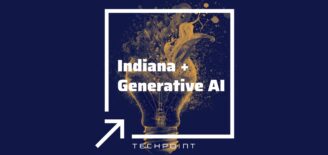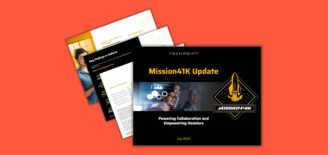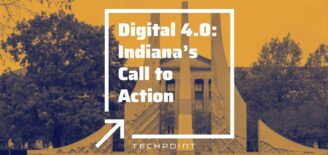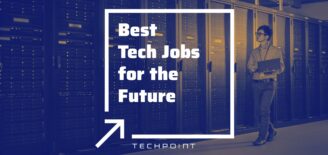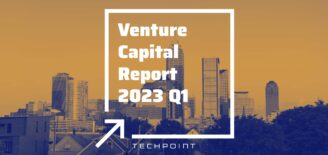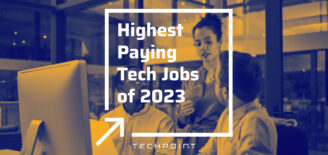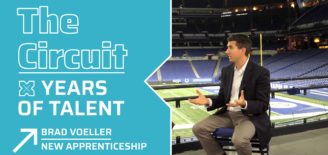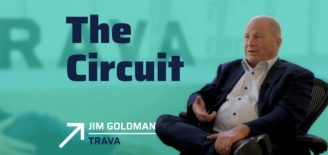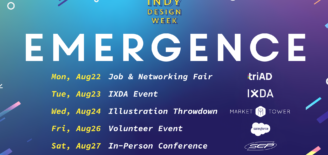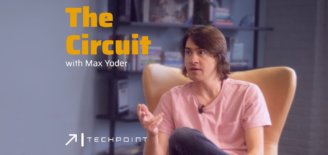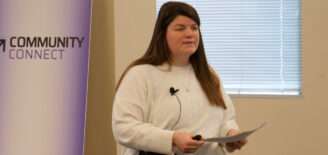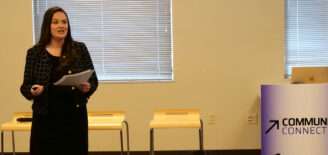Mitch Daniels answers 8 questions about innovation, entrepreneurship & more
Interactive Intelligence made headlines this week when they announced that their newest board member is Mitch Daniels — the former businessman, Indiana governor and current president of Purdue University. Interactive Intelligence, a NASDAQ publicly traded company, is a global provider of collaboration, communications and customer engagement software and cloud services that employs more than 2,250 people globally — 1,150 in the Indianapolis area.
 Interactive Intelligence founder and CEO Don Brown feels that Daniels’ many successes as a Governor, combined with his experience as senior executive of a global business and recent achievements leading Purdue University make for an exceptional addition to the board. You can read Daniels’ biography here.
Interactive Intelligence founder and CEO Don Brown feels that Daniels’ many successes as a Governor, combined with his experience as senior executive of a global business and recent achievements leading Purdue University make for an exceptional addition to the board. You can read Daniels’ biography here.
“We’re really excited to have Mitch on board,” said Don Brown, founder and CEO of Interactive Intelligence. “He has tremendous executive experience and an understanding of important vertical industries such as government, higher education and pharmaceuticals. Mitch is a strategic thinker who will be a tremendous asset as Interactive Intelligence continues its explosive growth as a cloud software company.”
In a phone interview, Daniels answered some questions about his new role as board member with Interactive Intelligence, as well as innovation, entrepreneurship and talent development in the state of Indiana.
Most of your experience has been with organizations that are much much larger like Eli Lilly and state and federal governments. Are there are specific experiences or lessons learned that could benefit Interactive Intelligence as it continues to grow?
DANIELS: “Well, we’ll see, and one would hope so. The challenge of maintaining both an innovation culture and a nimbleness we associate with smaller firms as you get bigger and bigger is one that’s had volumes written about it. It’s always a tough issue so the firm [Interactive Intelligence] is scheduled for more and significant growth, which is great, but maintaining their character and their culture through that is not an easy thing to do.
“I did spend years at Eli Lilly where we worked on and worried about that same thing, and clearly in state government it was a matter of going the other way — taking a largely dysfunctional, very, very bureaucratic arrangement and trying to make it much more change oriented, results oriented, customer oriented — all the things that Interactive is today and wants to remain. So maybe I have some lessons learned from both directions.”
Speaking of Innovation in a large organization, do you have a specific philosophy or approach to making innovation happen in a large organization?
DANIELS: “Well, we know what doesn’t work and that’s to impose layers of reporting and complexity. Interactive has maintained their strong R&D budget through thick and thin. That’s something that Lilly tried to do when I was working there and I think [Lilly] has maintained that generally.
“Resisting the temptation to back off of investments in innovation is part of it too, but I think the heart of it is trying to keep decision-making decentralized, certainly as it relates to the pursuit of new and better product development. Small-unit operation and project teams are more likely to turn up the next breakthrough.”
I recall that when you were governor you did a state asset assessment at the beginning and then again near then of your terms, and you were quoted as saying that the growth of tech was a big surprise. What is your perception of technology in Indiana today?
DANIELS: “It’s thrilling, and part of that was a surprise. How often we need to be reminded to never try to outsmart the market. You can’t outsmart the market. You remember correctly that as we reorganized and tried to put Indiana on the strongest pro-growth footing we could, we selected about six or seven areas to go after from a marketing perspective and software and IT was not one of them. So it was a tremendous delight to see the organic growth of particularly the software and marketing software sector around Indianapolis.
“A lot of that traces back to Interactive Intelligence. As far as I’m concerned, they were the first big breakthrough in that area and I think they inspired others and in some cases maybe directly spun them [new companies] off.”
Is there a specific innovation you would be most excited to see coming out of Purdue University or the state of Indiana?
DANIELS: “We missed it years ago, so I’m not the best person to predict the next tech innovations. I was pleased to have for eight years the job where we created the conditions for jobs to blossom and they did, we just didn’t know tech would be one of them.
“I’m now in a stewardship role at Purdue where companies are being born — many in the tech arena — and certainly we’re developing the talent that will propel companies like Interactive forward, but don’t ask me what specific area of tech will be the next big thing because I’m sure to get it wrong.”
What is your impression of talent attraction and development in the state of Indiana?
DANIELS: “My impression is that we’re building, in Central Indiana, a pretty good, virtuous cycle in which talent is being attracted. We are swamped in applications for computer science and this fall is going to be way beyond the application forecast, so people are seeing the opportunity in this sector. Meanwhile, companies are proliferating and spinning out new ventures and thereby creating new options for talent, both existing and new. So I think there is a lot to be excited about.”
You have options — I would imagine you have been invited to join a lot of boards. Why did you say yes to Interactive Intelligence?
DANIELS: “Good question. It’s true, I declined a number of opportunities and told myself that I would take a maximum of two. The other one is out of state. There is just not a firm I have admired longer than Interactive. When they called I was immediately interested and ultimately said yes.”
Your own daughter is a tech entrepreneur in the state now, do you have any new thoughts on starting or growing businesses here seeing it through that lens?
DANIELS: “Back at the beginning of our administration, I had big debates with some of my friends, including big name entrepreneurs you know very well, about how we were going to get this state on a pro-growth swing. We had to make it as investor friendly and new job friendly as we could, but it will not be complete unless we start growing more of our own businesses.
“We used to call it hardware vs software. How much of that was creating new laws and legal arrangements and better regulation — all of these things, and how much was cultural. So simply motivating or encouraging more bright people to try it [entrepreneurship] and the answer now is pretty obvious, it’s both. The hardware, I think, is in place. There’s just not a better place to start a business.
“The question is, could entrepreneurship become a bigger part of our culture? People like Don Brown, Scott Dorsey and Scott Jones have done so much to foster that culture and now I’m actually seeing it in my own family, which is a thrill. (Editor’s Note: One of Daniels’ daughters recently launched a software-as-a-service startup focused on photography studio management called Iris Works.)
“We certainly see it up here at Purdue, where we’re doing everything we can to become ‘entrepreneur U.’ I think we’re the most inventor friendly, most pro tech transfer university you can find. We’re going to break our record again this year for producing new startups.”


